- Home
- Jane Arbor
Golden Apple Island Page 3
Golden Apple Island Read online
Page 3
‘What do you do in England, by the way?’
Fran told him, where she and Mrs. Page lived, and filled in some of their background for him.
‘Good. Then you’ll be here for some months, as I shall be myself,’ he said. ‘If no one has put you in the picture about me, I’m an engineer, my patrons are Monarchos, the people who have negotiated the sale of considerable land to Don Diego de Matteor—about all he doesn’t already possess on the island, I gather—and my job is to superintend the initial development and laying-out of the site for the building he plans to do there.’
‘What kind of building?’
‘Flats, villas, a shopping centre, swimming pools. Squire de Matteor—sorry, I forgot he is your grandfather!—has a shrewd business eye on the happenings across the water on the Saharan fringe. Oil, in short. The island is less than a hundred miles from the mainland, air-wise, and he foresees the personnel of the soundings settling here and commuting over, as they already do from Grand Canary. He’s right. It will all come about and he’ll be ready for it. Meanwhile, by keeping my ear to the ground, I gather I have some personal spurs to win.’
‘Spurs?’ prompted Fran.
‘Yes. I’m gossiping, aren't I, but you shouldn’t be so easy to talk to. Two sets of spurs—Don Diego doesn't go very fervidly for Englishmen and his grandson, your cousin, regards me as a poacher of preserves. He’d like to be in charge of the project himself.’
‘But surely your job calls for an engineer, and Gil isn’t—’
‘I understand he claims he could employ engineers. Anyway,’ Rendle Jervis smiled wryly, ‘you can see that I need to step delicately—’
He broke off as Don Diego came in. He greeted Jervis distantly and asked of Fran how Raquel was. He poured Madeira into scintillating cut-glass and the two men talked business until Lucia returned. No one mentioned Gil before the meal was announced and they were already seated at table when he and Elena Merced arrived. She was greeted by Don Diego and Lucia with a courtesy which couldn’t be faulted, but from then on Fran had a feeling that only the dominant figure at the head of the table was fully at ease. Through several courses which Fran, used to the English habit of supper-in-front-of-TV, found very heavy, Don Diego guided the talk like a puppet-master manipulating strings and kept the men with him when at last Lucia rose.
In the salon again she poured coffee, then told Fran she would go up to see Raquel. That left Elena Merced and Fran together, another somewhat uneasy duet where Fran was concerned.
The other girl allowed that she spoke a little English, but by attempting none, gave Fran no help. Admitting with a shrug that it was not good for ‘the voice’, she smoked continually and cast frequent glances at the tiny face of a ring-watch. Her exchanges with Fran were mostly questions—How long were she and Senora Page to stay in the island? Fran had never visited her grandfather before? But she had known Gil already, had she not? Or so he had said since she arrived, and had earned a scolding from her, Elena, for never mentioning that he had a pequena prima coming over from England.
For some reason Fran felt the slur of ‘little cousin’ as much as she had resented Gil’s cousinly kiss of welcome. But before she mustered her Spanish for a retort, Elena had gone on to other questions, though abandoning her interest when Gil came in.
He was alone and at once Elena went over to him, claiming him with a hand on his arm. ‘We can go now? You have been let out of school?’ she asked, then turned with a quick frown as she followed his glance towards Fran.
He answered her, ‘Yes,’ and then asked Fran, ‘Why are you alone? Where is Aunt Lucia?’ Fran told him and rose. ‘I’d like to go up to bed myself now,’ she said.
He looked at his watch. ‘So early?’
She nodded. ‘We left home before it was light this morning and it’s been a very long day.’
‘Of course.’ As she passed he caught at her wrist. ‘But there’ll be another day to-morrow, chica! You’ll let me show you the sights and we’ll paint the town?’
This was the engaging Gil, the wheedler, the heart-warmer. Aware, from the corner of her eye, of an impatient flutter of Elena’s graceful fingers, Fran smiled at him. ‘I’d like that,’ she said.
Upstairs she met her aunt who told her Raquel was asleep. They said good-night to each other and though warned by Lucia against opening the shutters of her window to the night-moths, Fran could not resist doing so for a moment.
She stepped out on to a tiny rectangle of balcony, its breast-high surround of wrought-iron just an arm’s length away. There was no night chill in the air as there would have been in England; the darkness was complete except for the lights which winked from neighbouring heights and a glow in the sky from the town at harbour level far below.
Somewhere down there Gil and Elena Merced would be—at a night-club? At some smart supper-place? At her apartment? Up here the Quinta de los Santos brooded. Different luxuries ... different worlds. Fran reflected that nothing had prepared her for the cross-currents into which Raquel’s homecoming had plunged them both. Nor for the heavy formality of the Quinta. Nor for a Gil to whom she was still ‘girlie’ and ‘little cousin’ while he had gone on, grown up, grown away ...
She sighed, stepped back and closed the shutters. But a single moth followed her in, to rack and beat frantically against the fascination of the light until she was forced to switch it off. She was too overtired for sleep to come easily, but at last it did.
The next morning Raquel was much better and they went down together to a breakfast of rolls and coffee, taken on a patio and at which neither Don Diego nor Gil appeared. Lucia had breakfasted earlier and was busy about the house. For an hour after the meal was cleared no one came near them.
Raquel dozed on a chaise-longue and Fran had just decided that, as Gil didn’t seem to be going to honour their date, she would start on some work, when one of the maids came to say that Don Diego wished to see her. He was to be found in his study. The girl would show Fran where.
Surprised, Fran said, ‘To see me? Didn’t he mean the Senora?’—indicating Raquel.
The girl lowered her eyes, her shyness impenetrable. ‘He said the Senorita—you,’ she replied.
‘Oh, very well.’ Without waking Raquel Fran tiptoed away, and when she faced her host across a leather-embossed desk in a very masculine room, felt rather as she had done when summoned to the Head’s study at school.
Don Diego stood for her, poured Madeira and asked her permission to smoke a cigar. He enquired after Raquel, saying he would spend some time with her before luncheon, then said, ‘I thought we should get to understand each other, granddaughter, as you may find our life here very different from your own in England until you grow used to it. As of course in time you will. You understand what I am saying? If not, I could perhaps speak in English instead.’
Fran smiled. ‘I’ve understood you so far, but I should find English easier.’
‘Very well, though I hope you will soon begin to use Spanish, as it’s your own language, equally with English. You write a fairly correct letter in it, so you shouldn’t find it difficult to speak. I shall tell Gil he must see that you practise it. Now’—continuing in English—‘I understand from your mother’s letters to her sister that you work in England? What is it that you do?’
Fran told him, glad that she hadn’t to find the Spanish for ‘silversmiths’ and ‘engravers’ at short notice.
He said, ‘I see. And you left this engagement when you came here?’
‘Oh no.’ She put the record straight by explaining that she would still be working, partly On salary, partly as a freelance, adding, ‘It’s very good of my firm to keep the job open for me.’
Don Diego smoothed the point of his beard.
‘They must value your work. However, I hope you won’t give too much importance or time to it while you are here. You are our guest—’
‘Yes, thank you. I do realize that. But—’
She might not have spoken. Don Diego
continued smoothly, ‘And as such, we shall hope you will enter as much as possible into our life. Naturally you will need to spend considerable time with your mother, but your aunt will expect you to take an interest in house affairs and Gil must escort you on social occasions.’
Fran murmured, ‘I shall like that. But will Gil have the time to spare for me? Doesn’t he help you with the estate?’
‘Gil has precisely as much leisure as I choose that he shall. Also, if I wish him to spend some of it with you, he will do so. Circumstances have kept you away from us for too long and now you are here indefinitely you must learn something of our ways, our—’ Don Diego hesitated, then used a Spanish phrase which Fran guessed amounted to ‘local colour’. ‘You understand me, I hope?’ he finished.
‘Si, Abuelo,’ said Fran in Spanish, and saw his cold smile come and go. ‘Good. We are trying!’ he said in the same language. ‘And now will you tell your mother I’m glad to hear she is better and I’ll be with her as soon as I’ve dealt with some business I must see to first?’
It was Fran’s dismissal from the presence and she went. Outside his door she thought ‘Just like an on-the-carpet interview with the Head!’ and then that in some ways it was, in others not. For instance, she hadn’t thought it tactful to mention to Don Diego that the ‘circumstances’ of which he spoke were none of her making, and she would have held her tongue equally to the Head. But she felt the latter would have made clearer the real object of the exercise; she wouldn’t have been left with this impression there had been some unspoken purpose to it, nor that her immediate future on El Naranjal was being—what was the word?—groomed for some vague future further ahead.
Gil had still not put in an appearance when she returned to the patio. But Raquel was awake, wanting to know where Fran had been and what Don Diego had said to her.
Fran said, ‘I think he was being kind. He wanted to welcome me,’ and was rewarded by the relief and pleasure in Raquel’s eyes.
Raquel said she thought she would like to while away the time with her tapestry work and when Fran went to fetch it for her she brought down also her own unfinished rough sketches for the Beauvoir medals. She set to work to concentrate on them in a mood of slight defiance and of pique against Gil, losing herself in them until Lucia appeared, flanked on one side by a maid bringing coffee and cakes and on the other by one with a tray of wine and glasses.
These elevenses over, Fran and Raquel walked on the terrace and explored the gardens, but still time yawned before they expected to lunch at three o’clock. Don Diego came and took Raquel on his arm for another walk and as Fran was packing up her materials a maid came to say she was wanted on the telephone.
‘I am? That’s impossible! No one knows me—’ she began.
‘It is Senor Jervis—’ Again the breathy note which Spanish made of the ‘J’. ‘It was you he asked for, senorita,’ the girl assured her.
‘Oh—’
On the line Rendle Jervis’s voice came through, English and without nuance. ‘I was telling you last night what makes a site-agent tick, and I've been wondering whether you’d care to see the shape of the job I have on hand for your grandfather,’ he said. ‘The land is right on the sea front if you haven’t been down there yet, and I could be up at the Quinta for you inside ten minutes. What do you say?’
Though Fran had thrown all hope of Gil overboard she hesitated. ‘Now?’ she queried. ‘Would there be time before luncheon to-day?’
‘Luncheon? This isn’t England—you won’t be expected to show up for that before half past two.’
‘Three, I understand,’ murmured Fran. ‘All right, if you’ll bring me back in good time, I’d like to come.’
He was as good as his word. Fran only had time to tell Raquel where she was going and to tie a scarf over her hair when he arrived. He drove his car open and they dropped steeply downhill, catching glimpses of the long line of the sea horizon on the way. On the outskirts of the town the white and pink and blue washed villas began, singly and secluded at first, then ranged along palm-lined avenues, wheel-spoked out from the narrower, centuries-old streets which led in their turn to the heart of the place, the wide plaza dominated along one side by the west face of the Cathedral, where the pigeons strutted among the market-stalls and where at this hour the noonday tide of tourists and town idlers ebbed and flowed noisily about the awninged cafe tables and the bars which served them, dark and sunless as caves.
Jervis said, ‘We’ll call in for a fino or something on the way back,’ and swept through the melee, out on to the open coast road where breakers broke on the volcanic rocks beyond the sea wall and the skyscraper hotels were solid blocks against the sky.
Then they became a straggle, to be succeeded by vacant or half-developed lots or common land on which hobbled mules were grazing until, some ten kilometres out, another vast area was given over to busyness—to cranes and concrete-hoppers and planked, unmade roads for the army of trundling wheelbarrows.
Jervis braked, sat back and offered cigarettes.
‘Well, there you are. That’s my empire for the time being. You know, I sometimes wonder what Hercules would have made of it all?’
‘Hercules?’
‘Yes—that task of his, to fetch a golden apple from the Garden of the Hesperides. This group of islands was that garden, didn’t you know?’
‘So it was. And this one—“El Naranjal”, the Orange Grove—the “golden apples” were really oranges, weren’t they?’
‘So it’s supposed, though there are fewer oranges now than there are bananas and sweet com and tomatoes for Covent Garden.’
‘And this—’ Fran surveyed the patternless clutter before them. ‘When you’re supervising a site, don’t you ever despair of its becoming anything orderly at all?’
Her companion nodded. ‘My recurring nightmare! But thanks to architects and drains-boffins and builders, somehow it does. By which time I’m ready to move on to my next assignment in line.’
‘You must be very footloose. Are you married?’ asked Fran.
‘No. But I’m only footloose where the job is concerned. My private ambition is a country house, say in Surrey, where I’d have two dogs and four children and a cosy wife to come home to.’
‘And will you achieve them, do you think?’
‘I hope so, always supposing I achieve the cosy wife.’ He looked at his watch and restarted the car. ‘Better be moving, if we’re to take in a drink before I deliver you back.’
On the way Fran asked, ‘Why do you suppose my cousin—Gil—imagines he could handle the laying-out of that site himself?’
‘Because, I daresay, he has his own ideas for it and probably knows he has a flair for management, for dealing with people. And of course it’s true that he could employ chaps like me for the technicalities. Not that he’s likely to get the chance, however, while the set-up at the Quinta remains as it is.’ A pause. ‘Something of a despot, your grandfather—or did you know?’
Fran bit her lip. ‘Yes. And that Gil—chafes.’
Rendle Jervis looked at her quickly. ‘A good word. On the principle of rubbing sticks together to get a spark, there’s enough friction between the two of them to light a tidy fire.’ He paused again as something which had been a speck far along the ribbon-straight road ahead of them became a moving object, then a car, then a hurtle of speed, a bare-headed woman at the wheel, a man beside her; a laugh on the wind and then a rocket gone past.
Jervis glanced again at Fran and added, ‘Gil doesn’t help himself much either. That, for instance—’
A backward jerk of his head pointed his meaning and Fran understood. The woman who had laughed as the two cars met had been Elena Merced and the man had been Gil. Gil who had broken a date ... She asked carefully, ‘How do you mean, he doesn’t help himself?’
‘La Merced. In the quarter where it matters, the association isn’t popular. Not, it seems, that either of them cares. In her position she can afford to ignore the conventions and y
our cousin chooses to be a law unto himself.’
‘What is her position then? After dinner last night I was alone with her for a time, but she didn’t say what she did—if anything,’ said Fran.
‘She’s a singer. Not my cup of tea. High-class, recherche stuff—fado, flamenco, folksy, gipsy traditional songs that her agents dig out for her over half the world and which she interprets in her own way. She is a “rave” with these Latins and she’s got star-quality all right, though you may not have heard of her. Her publicity puts it around that she can’t take the climate much north of, say, Monaco. But south of that—west to Tangier and east to Istanbul—wow!’
‘And she lives here on El Naranjal?’
‘Between engagements, yes. She has an apartment in the town where she keeps well this side of discretion without really cramping her style. It was she I rather had in mind when you and I were discussing rebels last night—’
‘And are Gil and she—engaged?’
‘Engaged? Heavens, nothing so definite. I imagine she would consider an engagement a bit too binding if marriage isn’t in the immediate offing, and what your cousin is up to is anyone’s guess.’
They had regained the plaza now and when they had parked the car, found a table under a spreading plane-tree, where at once they became the centre of clamour. Rendle Jervis flicked aside a newsvendor, a shoeshine boy and a gnarled old woman proffering handmade lace mats as if they were a plague of insects.
‘You can’t afford to bat an eyelid of interest or you’ve had it,’ he told Fran. And he couldn’t know, of course, that she would have liked to see how readily she could read a Spanish newspaper and, left to herself, would have bought a lace mat if only to help the old woman along.

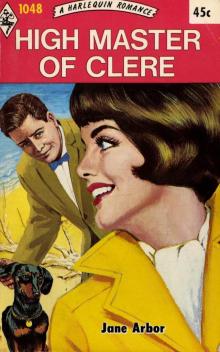 High Master of Clere
High Master of Clere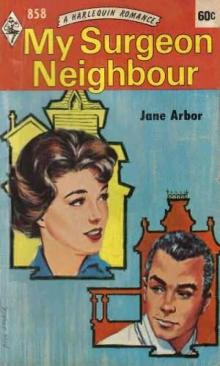 My Surgeon Neighbour
My Surgeon Neighbour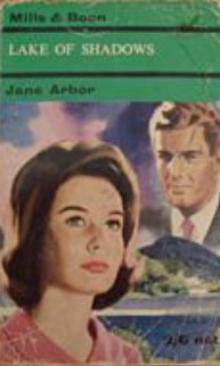 Lake of Shadows
Lake of Shadows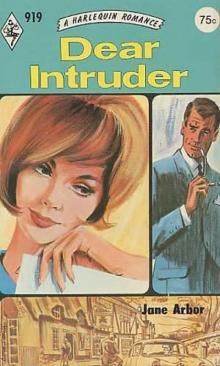 Dear Intruder
Dear Intruder Flash of Emerald
Flash of Emerald Return to Silbersee
Return to Silbersee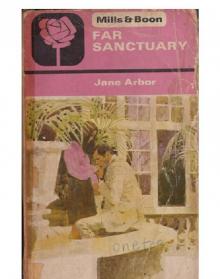 Far Sanctuary
Far Sanctuary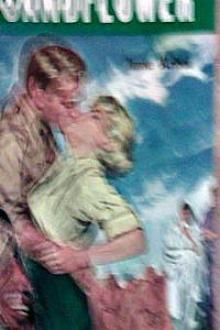 Sandflower
Sandflower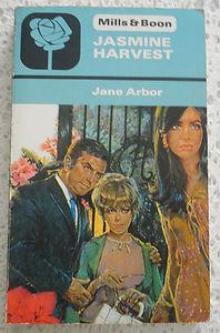 Jasmine Harvest
Jasmine Harvest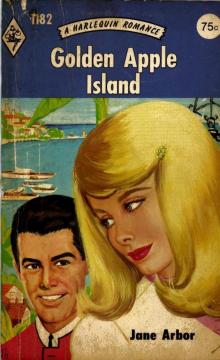 Golden Apple Island
Golden Apple Island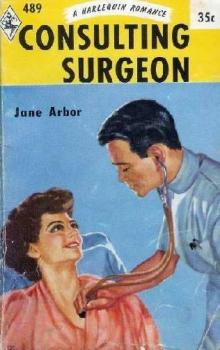 Consulting Surgeon
Consulting Surgeon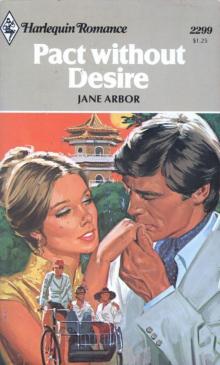 Pact without desire
Pact without desire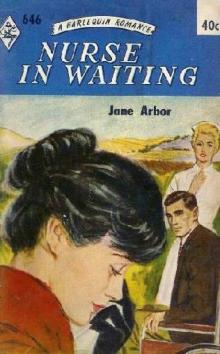 Nurse in Waiting
Nurse in Waiting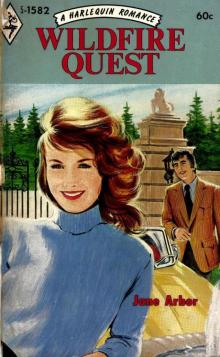 Wildfire Quest
Wildfire Quest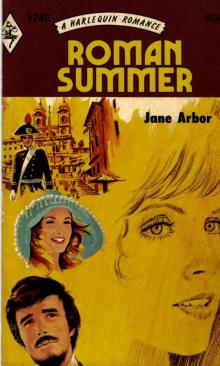 Roman Summer
Roman Summer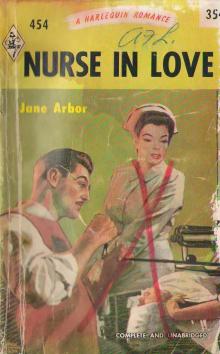 Nurse in Love
Nurse in Love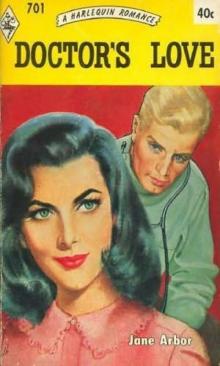 Doctor's Love
Doctor's Love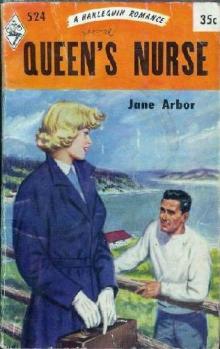 Queen's Nurse
Queen's Nurse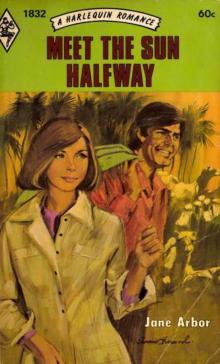 Meet the Sun Halfway
Meet the Sun Halfway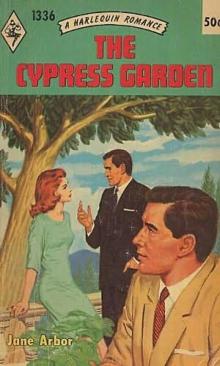 The Cypress Garden
The Cypress Garden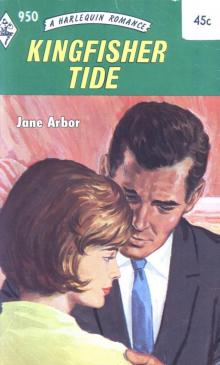 Kingfisher Tide
Kingfisher Tide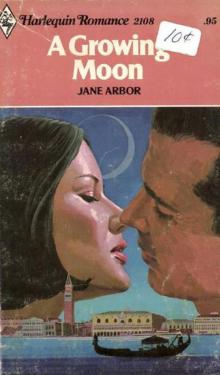 A Growing Moon
A Growing Moon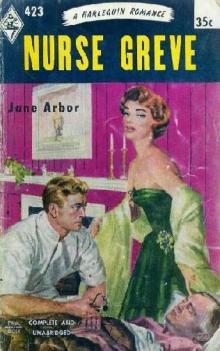 Nurse Greve
Nurse Greve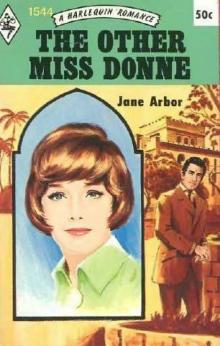 The Other Miss Donne
The Other Miss Donne